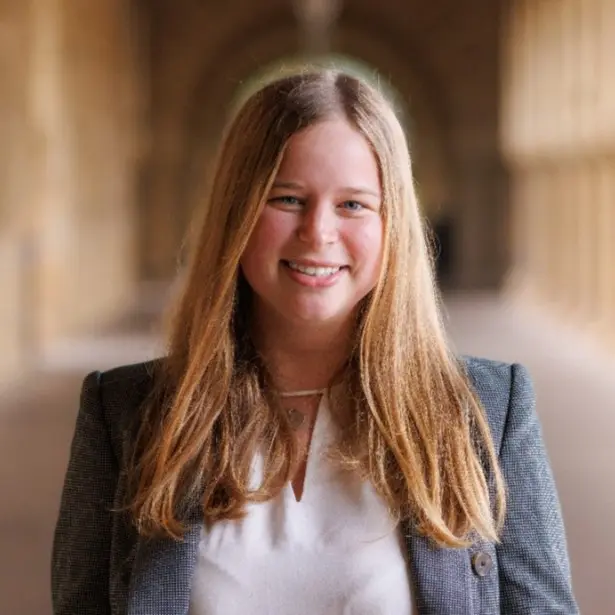Volodymyr Zelensky entered the international spotlight as Ukraine's war-time president after Russia’s full-scale invasion began on Feb. 24, 2022. Before becoming president, he was already famous as a comedic actor and businessman.
Zelensky, 44, grew up in a Jewish family — he is the only son of a college professor and an engineer. During World War II, several members of his family died in the Holocaust and one of his grandfathers served in the Soviet Army.
Zelensky was born and raised in the industrial city of Kryvyi Rih in Dnipropetrovsk Oblast, where he received a law degree from the Kryvyi Rih location of the Kyiv Economic University.
During his student years, Zelensky took up comedy, creating in 1997 the Kvartal 95 sketch comedy troupe, named after the 95th Kvartal neighborhood in Kryvyi Rih. Around the same time, he met his wife, Olena Zelenska, who joined the comedy team as a writer.
After successfully competing with the team and gaining prominence in the post-Soviet media space, Zelensky went on to start his entertainment business, also called Kvartal 95, in Kyiv.
Zelensky’s political career officially began in January 2019, when he announced his intentions to run for president. Zelensky won the election with 73% of the vote, beating incumbent President Petro Poroshenko. He was inaugurated on May 20, 2019.

What did Zelensky do before becoming president?
Before becoming president, Zelensky focused on building his media business. Expanding on the Kvartal 95 legacy in comedy, he created the “Vechirny Kvartal” comedy show on one of Ukraine’s biggest TV channels, Inter, in 2005. Zelensky served twice as the general director of Inter.
The media studio developed original content for TV and the big screen. The company produced most of its content in Russian, targeting a greater Russian-speaking audience in the region. Zelensky himself only started seriously learning Ukrainian in 2017 with a tutor.
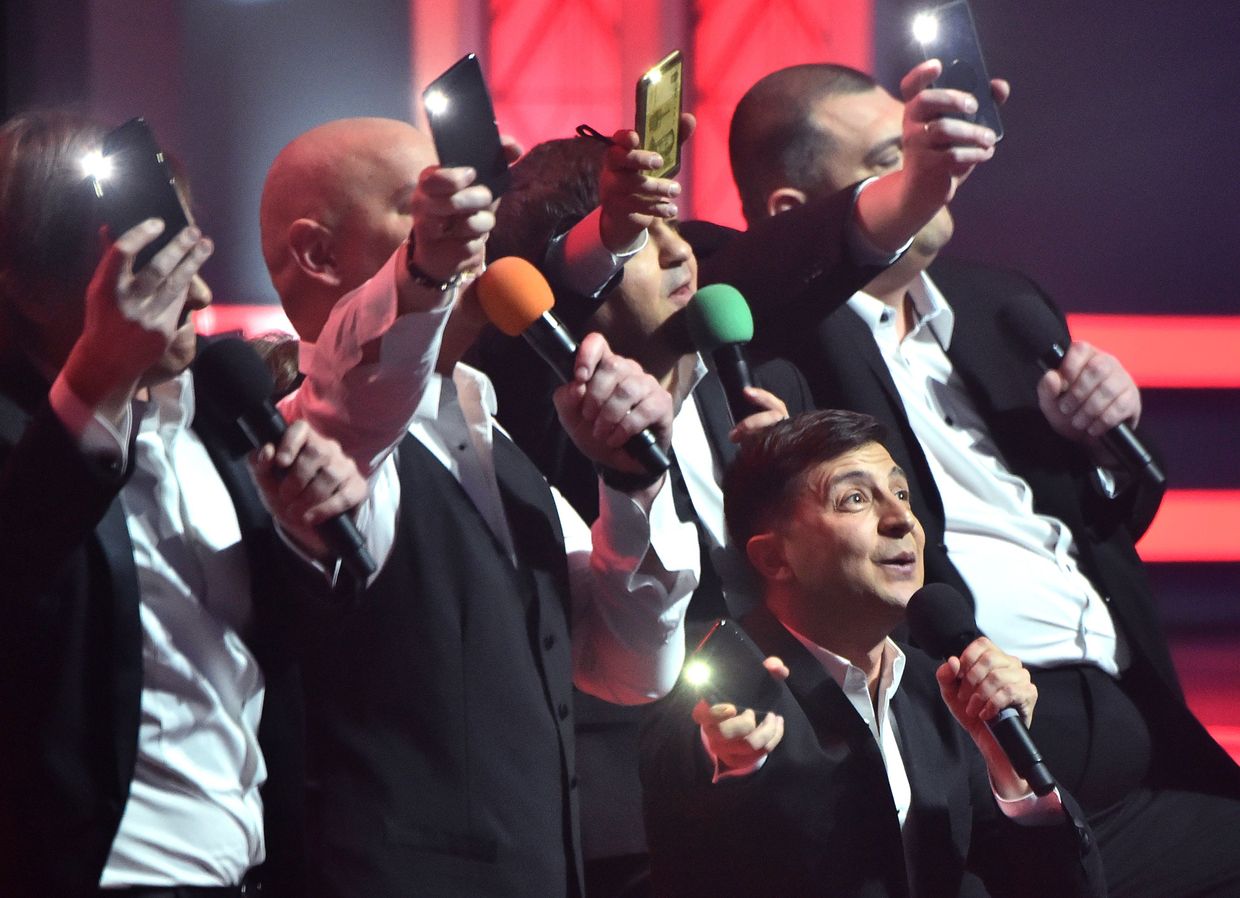
The popularity of his show, “Servant of the People,” extended beyond the region — landing on Netflix in 2017. The series is about a high school teacher (played by Zelensky) who becomes president of Ukraine, pledging to fight against corrupt forces in the country. Many believe that the 2015-2019 show served as a part of the setup for Zelensky’s presidential run in 2019.
How did Zelensky become president?
Zelensky announced his presidential run in the first minutes of 2019. The address came after the “Vechirniy Kvartal” New Year’s programming on 1+1, a channel owned by oligarch Ihor Kolomoisky. The announcement intentionally aired at the scheduled time of then-President Poroshenko’s traditional New Year’s presidential address.
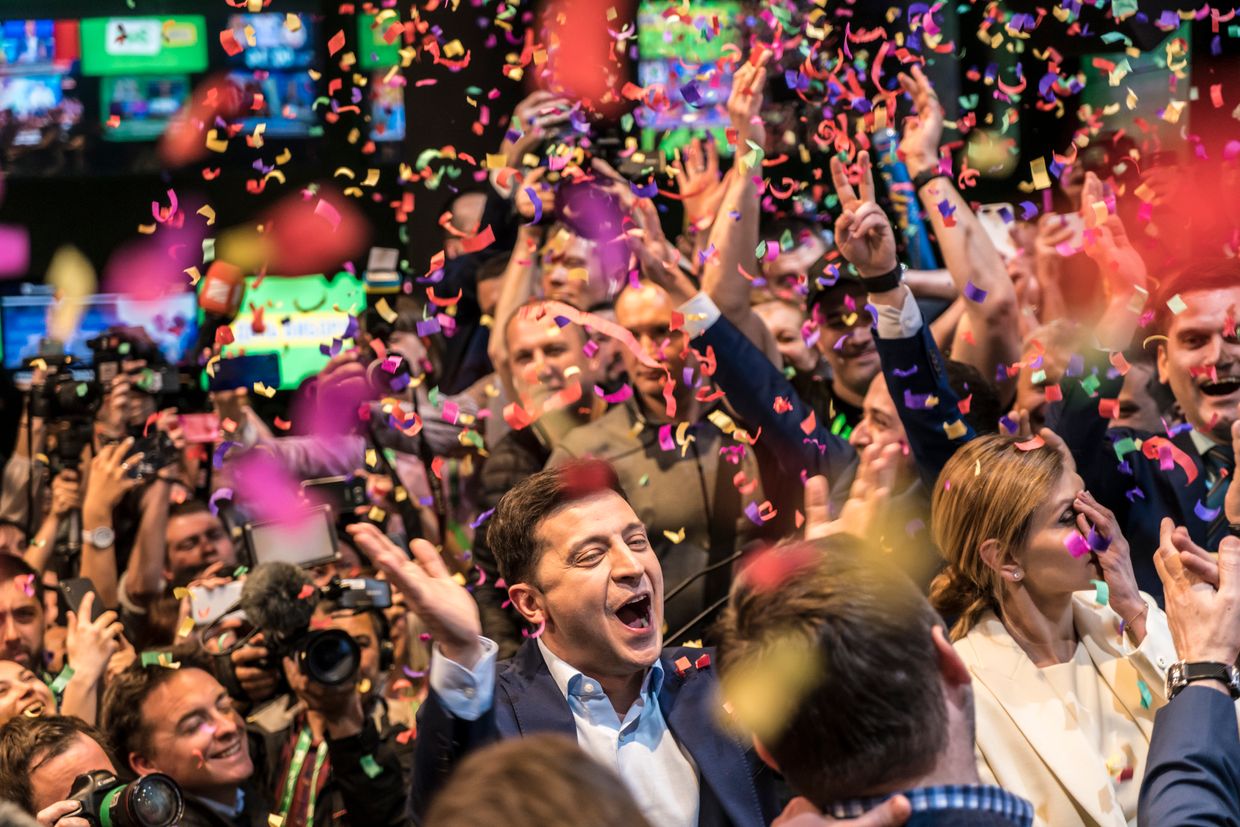
Thirty days later, the Central Election Commission approved Zelensky’s candidacy from the “Servant of the People” political party.
Zelensky led an anti-establishment campaign of eliminating corruption, collecting ideas from the electorate on other priorities. He advanced to the run-off with 30.24% of the vote, with Poroshenko gaining 15.95% on March 31.
Between election rounds, the candidates agreed upon televised debates. The unprecedented debate at the Olimpiiskyi Stadium in Kyiv drew a crowd of 22,000 people. The gap increased in the run-off, with Zelensky securing 73.22% of the vote – more than any presidential candidate before him.
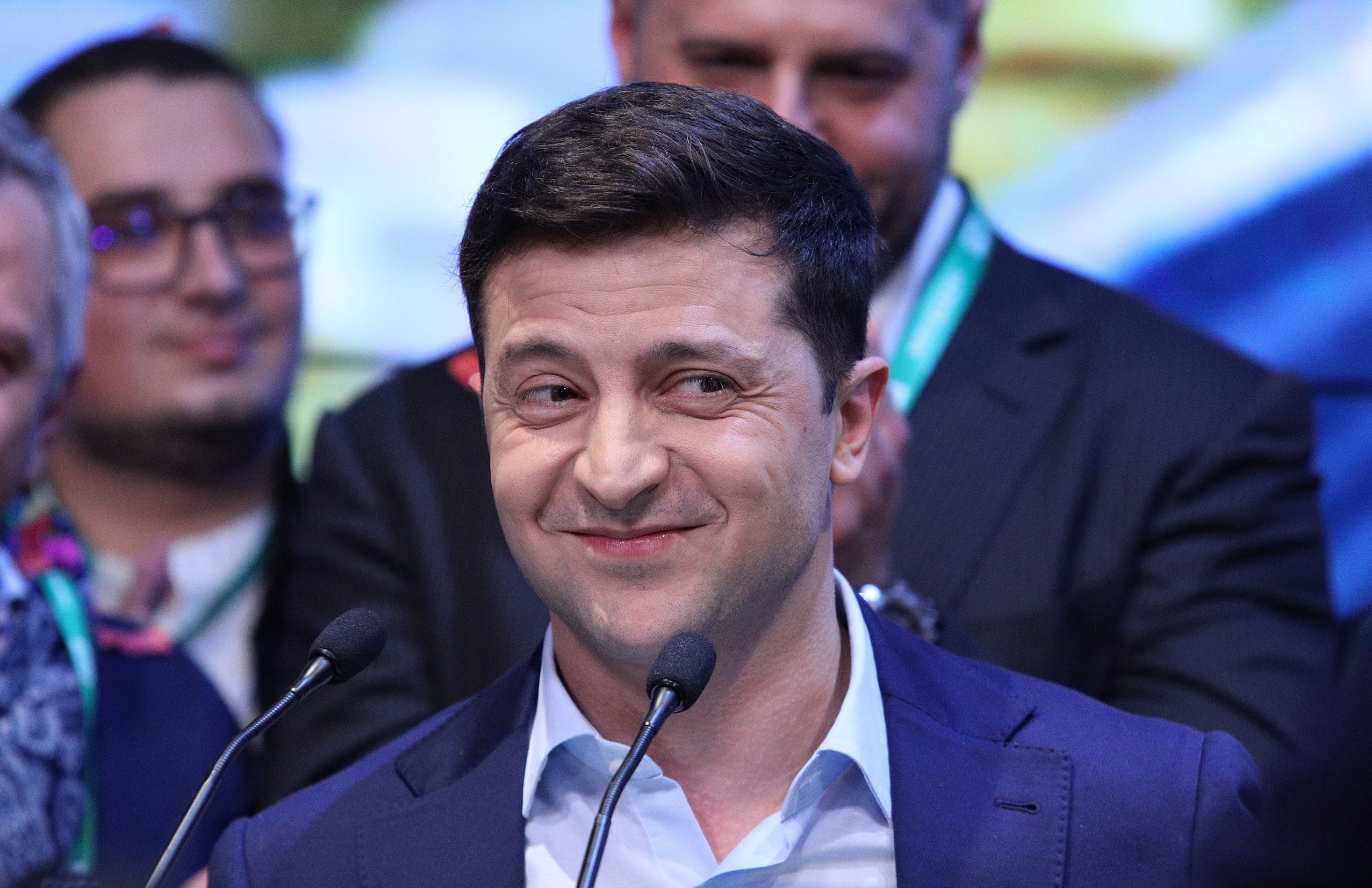
What is Zelensky credited for during his tenure as president?
Zelensky assembled a young team in his Cabinet of Ministers, with an average age of 39. His party “Servant of the People” comprised 254 representatives out of 450 deputies in Ukraine’s parliament.
According to Vasyl Filipchuk, senior advisor at the International Center for Policy Studies, Zelensky had fulfilled 27% of his pre-electoral promises by November 2021.
As part of his campaign promise to lead Ukraine into a digital future, his administration created the Digital Transformation Ministry. The newly-created ministry launched Diia, an e-governance app which services over 12 million Ukrainians and offers 72 governmental services digitally as of 2021, including paying taxes and hosting Covid vaccination certificates.
During his administration, the parliament also passed a law opening Ukraine’s farmland market for the first time. The agricultural land market officially opened on July 1, 2021. It is considered one of the most significant landmarks in Ukrainian legislation since independence in 1991.
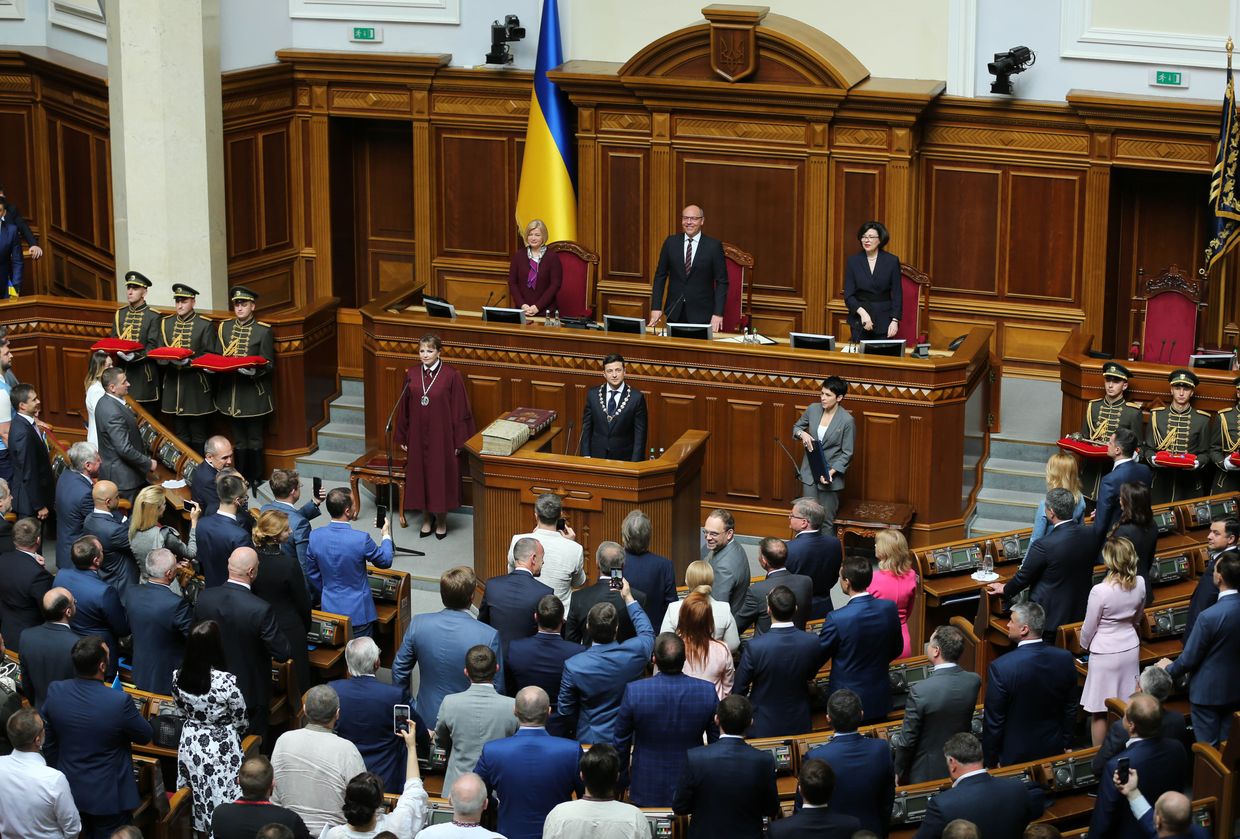
After internal party disagreements on the best way to approach deoligarchization efforts, Zelensky signed the so-called anti-oligarch law in 2021 that defines oligarchs and applies restrictions on them. The National Security and Defense Council is in charge of carrying out the law.
People with outsized economic and political influence will now be prevented from large campaign donations and big privatization undertakings.
At a press conference at the midpoint of his presidency, Zelensky also noted achievements in infrastructure expansion under his “Big Construction” road and infrastructure program, decentralization reform development, economic prosperity, and mobilizing international attention around Donbas and Crimea.
Ukrainian society also widely supported his ban of pro-Russian channels owned by Viktor Medvedchuk, a Ukrainian politician and pro-Putin oligarch.
What scandals have surrounded the Zelensky administration?
In the first years of his presidency, Zelensky has faced his share of criticism. Zelensky’s popularity dropped sharply between 2019 and 2021. Among the population who intend to vote and have decided on their candidate, Zelensky dropped more than 50 percentage points to 21.8% by the end of 2021, with his party’s popularity also taking a hit.
Internal staff disarray in the president’s party became a challenge to a united agenda. Delays in appointing ministers and voting on legislation showed lack of organization, while the ousting of the Parliament’s Speaker Dmytro Razumkov signaled the increasing demand for internal control from the president.
Police brutality, failure to uphold the rule of law, and corruption also united Ukrainian activists in protests against Zelensky’s Interior Minister, Arsen Avakov. Allegedly, Avakov only chose to resign when Zelensky intended to dismiss him over the lack of loyalty, not public pressure.
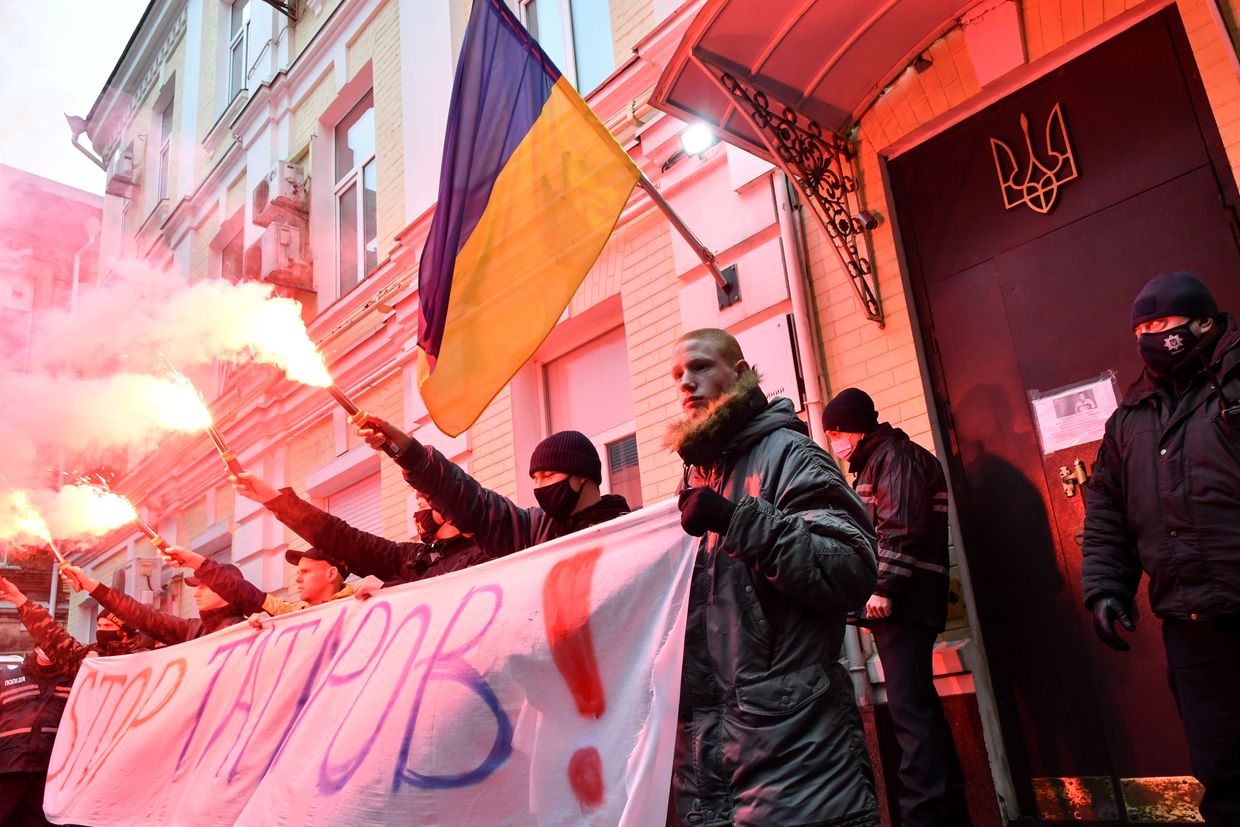
The lack of Zelensky’s commitment to anti-corruption reform championed during his campaign came through in the delays in the selection process and appointment of the head of the Specialized Anti-Corruption Prosecutor’s Office, vacant since August 2020.
The delayed appointment of the permanent head of the State Bureau of Investigations highlighted the same problems.
As the police and security services reform stalled, the National Security and Defense Council, led by the President, took on an outsized role in applying sanctions and making security decisions.
The prioritization of loyalty within the party ranks as well as an outsized exercise of control caused doubts among civil society and mistrust reflected in the low popularity rankings through Zelensky’s tenure before the war began in February 2022.
How has he been as a wartime president?
Zelensky moved past the perception of a comedian-turned-president, mostly known in the Western media before the war through his role in U.S. President Donald Trump’s impeachment at the end of 2019.
Once the full-scale war began on February 24, 2022, Zelensky became a symbol of Ukrainian resilience and the ambassador of the most pressing Ukrainian needs on the international stage. By refusing the offer to evacuate the country as Russian troops entered Kyiv, Zelensky famously said, “The fight is here. I need ammunition, not a ride.”
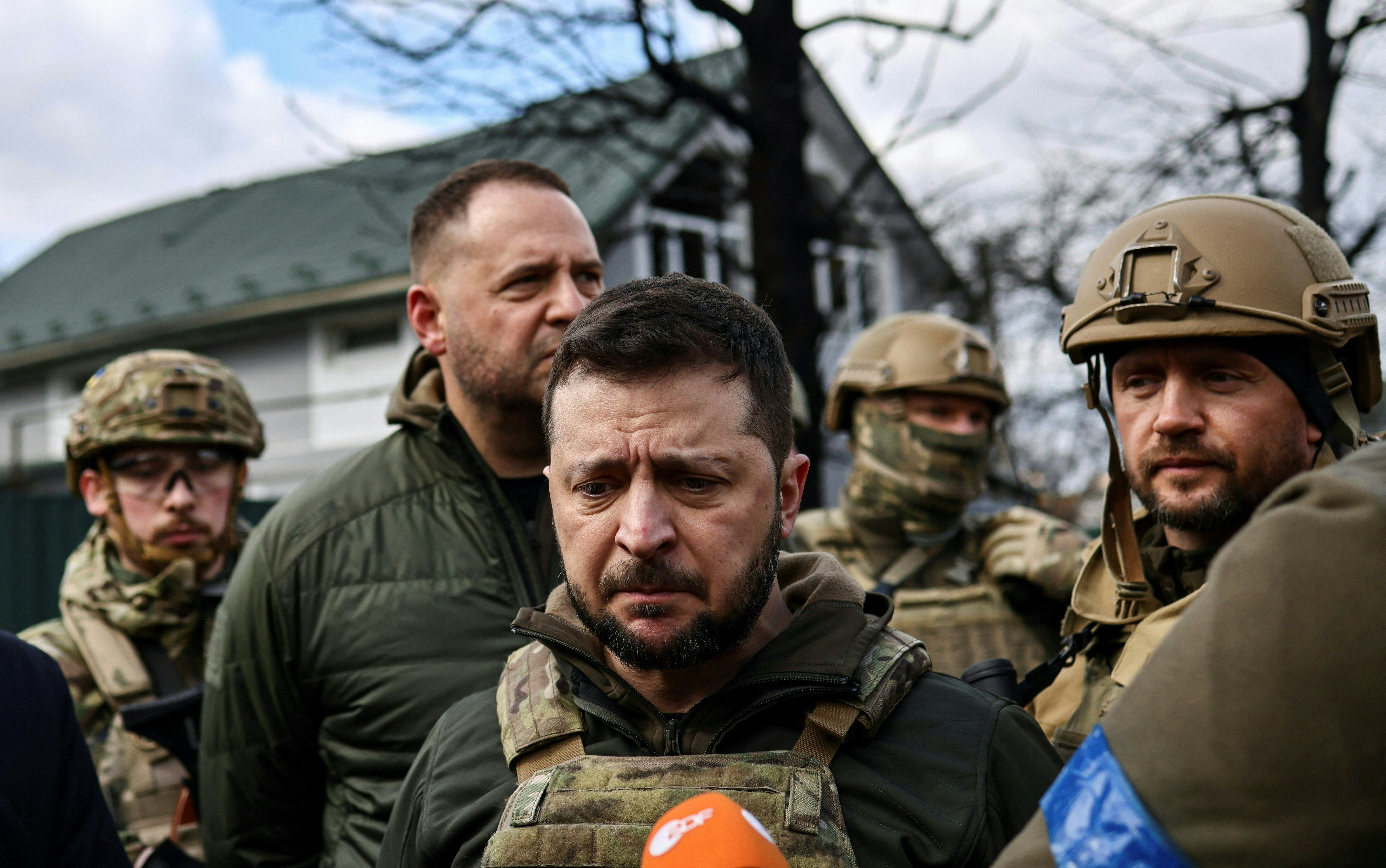
He capitalized on the momentum of successful Ukrainian resistance to call on Western partners to give military and humanitarian aid to continue pushing back against Russia’s unprovoked invasion.
In doing so, he strengthened Ukrainian cooperation with the U.K., welcoming Boris Johnson for visits to the Ukrainian capital and cementing cooperation via the U.K.’s supply of lethal defensive weapons and progress on sanctions. Relying on Poland as a temporary home for many Ukrainian refugees, Zelensky also gained a strong ally in Polish President Andrzej Duda.
In addition to skillfully navigating international relations, despite the lack of experience at the beginning of his term, he also regained trust among his citizens.
In early March, 93% of Ukrainians trusted Zelensky’s actions, compared to 41% before the full-scale invasion.
One of the unique demonstrations of the newfound support can be heard in a song of a previous Poroshenko voter who is now wholeheartedly behind Zelensky’s efforts, with more than five million views on YouTube.
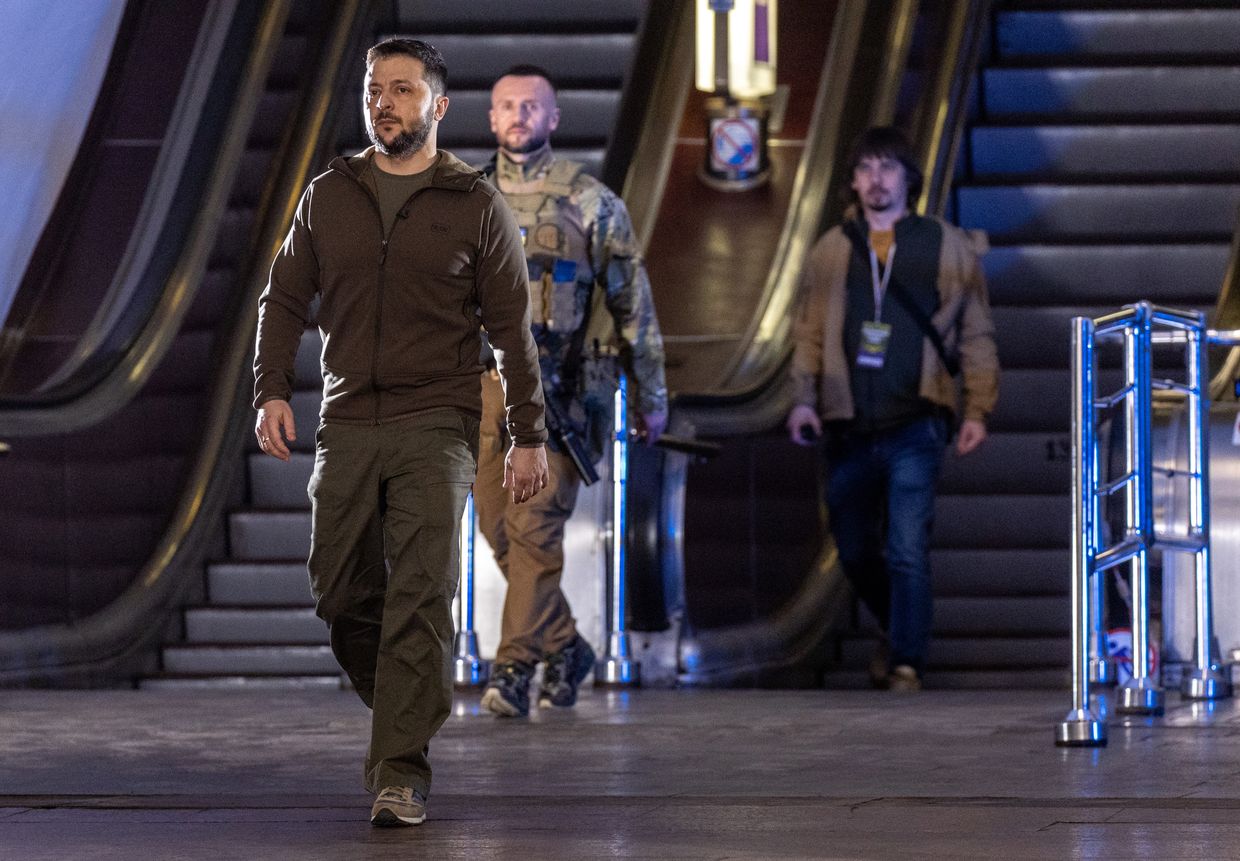
Through daily evening addresses, the president has guided the nation through its most challenging periods in the history of independence.
The public, however, also continues to keep the executive accountable. He had faced domestic and international scrutiny over delays in appointing the head of the Specialized Anti-Corruption Prosecutor’s Office. This led to the appointment of Oleksandr Klymenko on July 28.
Zelensky also removed Prosecutor General Iryna Venediktova and Security Service Head Ivan Bakanov from their positions in June 2019. While both officials have previously came under public criticism due to claims of corruption and lack of qualification, Zelensky cited endemic treason in their agencies as the reason for removal.
The successors, however, did not install trust among the public. Andriy Kostin, the new prosecutor general, has been vetoed by Western experts in a contest for chief anti-corruption prosecutor and faced accusations of cover-ups and nepotism.
